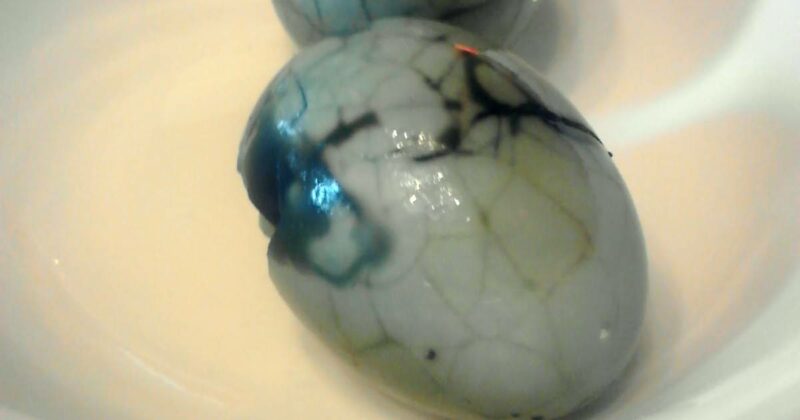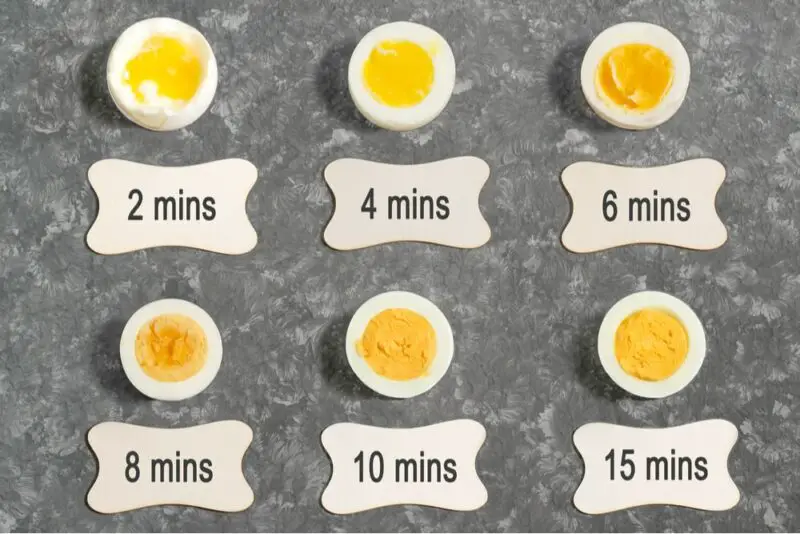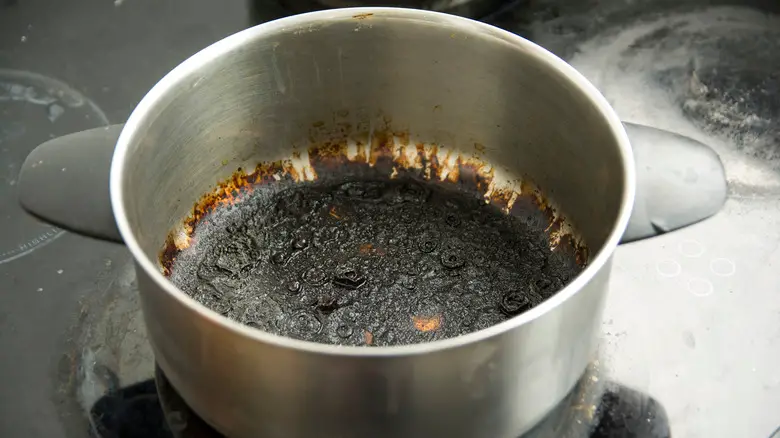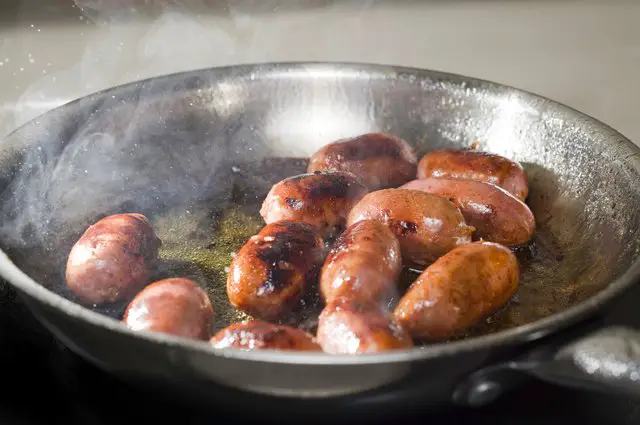What Does a Boiled Rotten Egg Look Like?
If you’re curious about the appearance of boiled rotten eggs, you’re not alone. It’s a common question among egg lovers. But why the interest? Well, for starters, rotten eggs can have serious health consequences if consumed. Understanding what a boiled rotten egg looks like is an important part of avoiding its risks.
What is a Rotten Egg?
Eggs go bad when they start to rot, and this occurs when enzymes and bacteria break down the proteins and fats inside them. As a result, the egg becomes mouldy, produces toxic gases, and smells terrible.
So why do eggs become rotten? There are several reasons:
- Exposure to fluctuating temperatures during transit or storage
- Improper handling and storage
- Environmental factors such as humidity levels
- The age of the egg itself – the older the egg, the more likely it is to spoil
Telling if an Egg is Rotten:
Identifying whether an egg is rotten or not isn’t always easy. But there are some telltale signs:
- The smell- Rotting eggs have a strong sulfur-like smell that’s impossible to ignore. Fresh eggs have little to no odor.
- The appearance- A rotten egg will usually have discolored yolk and white. They might look cloudy or even green or black on occasion.
- The texture- When cracked open, boiled rotten eggs may be slimy or even “jelly-like.”
It’s important to remember that eggs aren’t like other foods. If an egg smells or looks questionable, it’s best to err on the side of caution and dispose of it.
Boiling a Rotten Egg
Is it safe to boil a rotten egg? As long as you have confirmed that the egg is rotten and throw it away, then yes- boiling it should be safe. But, boiling the egg doesn’t change its status as “off” food.
The Boiled Egg Cooking Process
Before diving into boiled rotten eggs, let’s have a brief overview of how to make boiled eggs:
- Add your eggs to a pot and cover them with fresh, cool water. Make sure that the water is high enough to cover the eggs by at least an inch or two.
- Place the pot on the stove over high heat and bring it up to a full boil.
- Once the water boils, turn off the heat and remove the pot from the burner.
- If you prefer soft-boiled eggs with runny yolk, let the eggs sit in hot water for about 2-3 minutes before removing them from the pot.
- If you like hard-boiled eggs with a completely cooked yolk, let them sit in hot water between 10-12 minutes before removing them from the pot.
- At this point, consider placing them into cold water for some time to make peeling easier.
Differences Between Boiled Fresh and Boiled Rotten Eggs
We’ve already discussed what makes a fresh egg different from a rotten one. But what about boiled fresh versus boiled rotten?
- Appearance – The most noticeable difference between boiled fresh and boiled rotten eggs is that the yolk and white on the inside of the egg tends to become turbid, discolored, or even develop mold spots on rotten boiled eggs compared to freshly boiled eggs.
- Smell – As mentioned earlier, a rotten egg has a strong sulfur-like smell that’s nearly impossible to forget. A boiled fresh egg doesn’t have any odor at all.
- Texture- The yolks in rotten boiled eggs are often slimy or even “jelly-like,” which can be off-putting. Fresh-boiled eggs will have intact and firm yolks.
Side-by-Side Comparisons:
| Boiled Rotten Eggs | Boiled Fresh Eggs |
| Smelly | No Smell |
| Turbid, Discoloured, Green or Black appearance | Clear yellow yolks with a uniform texture |
| The texture is slimy or jelly-like | Firm texture yolks |
Identifying A Boiled Rotten Egg: Sight And More
Sights:
The best way to identify a boiled rotten egg is by sight. They will look similar to a normal boiled egg, but some changes in color and consistency are indicative of their spoiled state.
- The cooked white may appear cloudier than usual.
- The yolk may also be less vibrant in color and appear mottled with varying colors ranging from green to black.
- The shell may have cracks on it, or even be partially missing in some spots.
In case you have two boiled eggs and unsure of which is fresh and which one is rotten, use the following steps:
- Observe the eggshells – If there are any cracks or blemishes, these can indicate which egg is rotten.
- Whiff them – If both eggs look perfectly normal but has a sulfur-like smell, then chances are both are rotten.
- Peeling – When you peel open your eggs, a good quality egg will have its white part firmly attached to its egg membrane while the yolk always retaining its center position.
Other Sensory Indicators
While identifying a boiled rotten egg by sight is easy enough, other senses can help confirm a rotting egg:
- Smell- The putrid odor of sulfur that comes from rotten eggs will be impossible to miss.
- Texture- The jelly-like texture of the yolk in a boiled rotten egg is also an excellent indicator of bad quality. It won’t have the typical hard-boiled consistency.
Risks of Consuming Boiled Rotten Eggs
Eating a boiled rotten egg is rarely recommended. While cooking does reduce pathogen bacteria levels, it can’t entirely eliminate them from the food item. You’re exposing yourself to unnecessary health risks that could turn out fatal potentially. Still curious, read on…
Potential Health Risks
The primary risk of consuming any rotten food is food poisoning. If you end up consuming boiled rotten eggs, you run the risk of contracting infections such as E.coli and Salmonella. Common symptoms of salmonella poisoning include stomach pain, vomiting, fever, and diarrhea. Symptoms typically onset between 6 hours to 6 days after the contaminated meal.
What To Do With Rotten Eggs: Safe Disposal Measures
If you have a questionable egg, it’s best to err on the side of caution than take any chances. Here are some safe disposal measures:
- Do not try to crack them open or boil them into dishes.
- Wrap them in newspaper or paper towels to be thrown in the garbage bin and discard them as quickly as possible. This prevents other pets or wild animals from consuming them and getting sick too.
- Don’t throw eggshells down the kitchen sink drain or your toilet bowl – it will hurt both your plumbing system and the environment.
Safe Ways To Make Egg Storage Last Longer
If you want to store your eggs for an extended time, remember these simple precautions:
- Store them in their original cartons- yes, this does increase their keeping time.
- Store eggs at temperatures below 40Fahrenheit/4 degrees Celsius-do not leave eggs at room temperature.
- Wash hands before handling eggs.
- Avoid eggs with cracks on their shells.
- Don’t store cooked eggs for too long- a day or two at most is reassuring.
Conclusion: Better Safe Than Sorry
Now that you know what boiled rotten eggs look like, it’s best to avoid them. They pose a severe health risk and won’t taste as good as fresh boiled eggs anyway. It’s also essential to practice safe egg handling practices at all times; remember that prevention is better than cure. Maintain the freshness of your eggs by following proper egg storage rules and, when in doubt, discard questionable eggs.
Frequently Asked Questions
#### What is a boiled rotten egg?
A boiled rotten egg is an egg that has undergone decomposition due to age or improper storage. This means that the yolk and white have solidified and become discolored, creating an unpleasant odor.
#### How can you tell if an egg is boiled and rotten?
Boiled rotten eggs will have an off-putting sulfur smell when cracked open. The yolk and white will also be discolored, having a greenish-grey or black appearance. The eggshell may also be difficult to peel, indicating that the membrane around the egg has broken down.
#### Is it safe to consume a boiled rotten egg?
Although consuming a boiled rotten egg is not harmful, it is not recommended due to its foul smell and taste. It is best to discard the egg and avoid any potential foodborne illnesses.
#### How can you prevent boiled eggs from becoming rotten?
To prevent boiled eggs from becoming rotten, store them properly in the refrigerator at or below 40°F (4°C) and consume them within one week of boiling. Proper storage can help preserve the quality and freshness of the eggs, ensuring they do not undergo decomposition.






